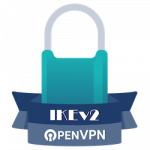What is a VPN?
A Virtual Private Network is a service that allows you to connect to the Internet via an encrypted tunnel to ensure your online privacy and protect your sensitive data. VPNs are commonly used to secure connections to public Wi-FI hotspots, hide IP addresses and make your browsing private.
Get started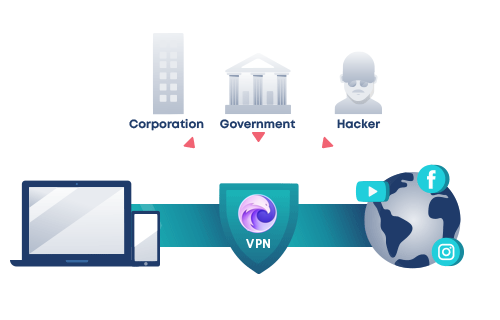
Why do I need TrueVPN?
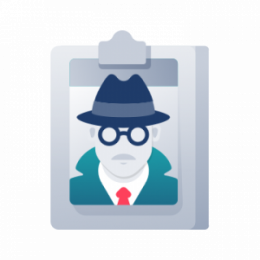
Hide your IP address
Masking your IP address is essential to becoming private online. A VPN makes sure that your city, country, and torrent download history aren’t linked to your identity.
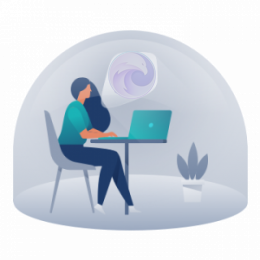
Wi-Fi Security
TrueVPN encrypts your online data and helps to secure your personal information when you use free Wi-Fi in airports or anywhere else.
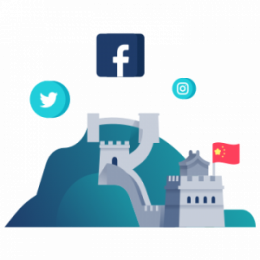
Unlock restricted services
You can unblock sites by connecting to a TrueVPN server in a different country. Access to various websites is restricted in many countries due to growing internet censorship or geo-blocking.
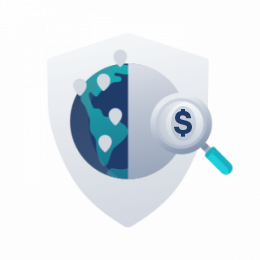
Save cash shopping online
With TrueVPN, you can get better deals online. Save money while purchasing service subscriptions, getting airline tickets, or renting cars.
Who can benefit from a VPN?
This technology is quickly becoming essential for most of the people who go online
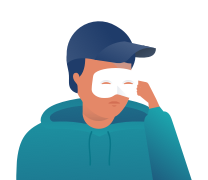
Privacy geeks
We agree - you should be able to control your privacy. A VPN protects all your data & makes sure you’re not exposed when you go online.
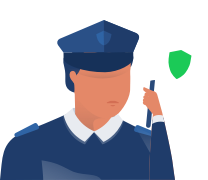
Security devotees
It’s always a good idea to take extra steps to secure yourself online. Our industry-leading AES-256-GCM encryption does just that!

Human rights activists
In some countries, freedom of speech can come with dire consequences. Hide your identity, bypass censorship, and speak to the world using a VPN.

Sports zealots
Don’t miss out on a match just because you’re in a different country. Stream your favorite games from anywhere in the world using a VPN.

Travelers
When you travel, public Wi-Fi is a necessity. Make sure you don’t compromise your security and use a VPN on public networks.
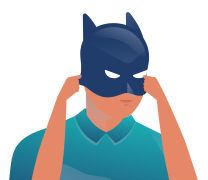
Avid gamers
Enjoy games before they are available where you are, get better prices, and play with your expat friends on the same servers with a VPN.

Movie & TV show fans
Connect to a VPN server in a different country to enjoy libraries streaming services like Netflix, BBC iPlayer, Disney Plus, and many others.

Torrenting enthusiasts
To prevent threatening letters from your ISP when you torrent, simply connect to a VPN and enjoy P2P sharing privately.

Mobile users
Save mobile internet data and make your connection faster with CleanWeb that blocks ads before they can load and slow you down.
How does a VPN work?
It takes a lot of moving parts, but it’s simple on your end. Here’s how it works:

DNS request
The first step is making a DNS request. That’s how you get the IP address of a VPN server.

Secret keys
At this point, secret keys are built. Your VPN will need them in the next steps.

Secure channel
A secure channel is created, all with the help of those special secret keys!

Data encryption
VPN protocols help encrypt your data that will use the secure channel. Voilà!
VPN protocols
A VPN protocol is a crucial mechanism that makes your connection to the VPN server possible. Here’s what protocols you may come across:

OpenVPN
Is an open-source VPN protocol.
It’s fast, secure, and works best for long-distance connections.

IKEv2
Is another fast and secure VPN protocol. It works best in shorter distance connections.

PP2P and LT2P
Are outdated tunneling protocols, and we highly recommend not to use them. They can offer neither the security nor reliability of OpenVPN or IKEv2.

IPSec
Is a security protocol that enables encryption, which is why it’s used in combination with outdated tunneling protocols such as LT2P.

Transport Layer Security
SSL/TLS is used very commonly.
For example, in your browser! It can secure your connection to some degree.

Secure Shell (SSH) VPN
Is a tunneling protocol used to connect from one VPN server to another. However, there are better (more secure and reliable) alternatives.

Wireguard
Is a new communication protocol.
It hasn’t been around long enough to make any definite statements about its security and reliability.
F.A.Q.
Am I completely anonymous with a VPN?
Unfortunately, there is no such thing as being anonymous online. Nevertheless, a VPN does offer you privacy & security and makes it extremely hard for anyone to decipher your activities. However, the only way to be 100% anonymous digitally is not only to never use the internet but also to never use any services that may store information about you online. For most of us, that’s impossible.
A good VPN provider will only have minimal data about you (such as your email address), will not keep any activity or connection logs, will not log your IP addresses, used bandwidth, network traffic, and similar data.
Can I be tracked if I use a VPN?
Yes, a VPN makes you private online, and it would be ridiculously difficult to crack any of the security systems to extract information about you. Whether you can be tracked online doesn’t just depend on your VPN provider, but also on your digital literacy, how well you assess risk, and how much you share online. However, hackers and spies usually follow the path of least resistance. Your social media posts may offer sufficient information to track you online. Spear-phishing campaigns where scammers target a specific person for information or money are surprisingly effective.
Can a VPN make my Internet connection faster?
Yes, in some cases, a VPN can actually make your Internet connection faster. While a lot of the time, you may experience a slight drop in speed (in the best-case scenario, it’s not noticeable by simply using your device as you normally do), it’s a different story if you experience throttling.
Throttling is a practice used by a lot of ISPs. Sometimes it is a necessary thing to do in order to manage the data load for all users so that everyone gets adequate speeds.However, some providers take it to extremes and cap bandwidth for specific services or apps – like Amazon, Netflix, Skype, or YouTube. That can significantly damage your call or video quality, but if you use a VPN, you can get around it! Your provider will not be able to throttle your speed, because they will not know what you’re up to.
